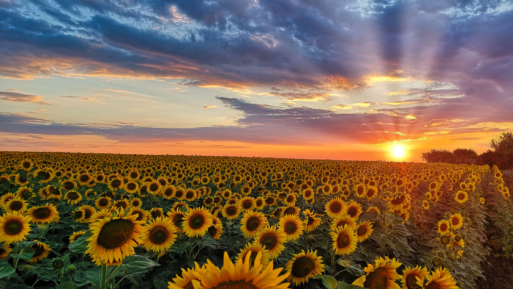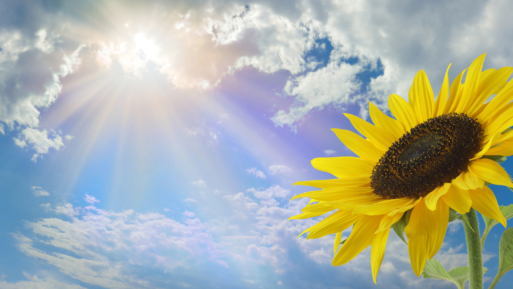
When I die,
Don’t place my
Wasted husk
In a wooden box
Buried six feet under
Where I can’t feel the rain.
“Sunflowers” is a poem taken from “Seasons,” the debut poetry book by poet Hillary Gonzalez. In it, Gonzalez explores a lifetime of grief, love, abuse, bisexuality, and the neurodivergent experience. Her poems, as a collection, are frank expressions of difficult and deep emotions, covering a gamut of topics but evoking the same terse yet contemplative tone.
In “Sunflowers” in particular, Gonzalez reflects upon how she would like to be buried after she dies. Her description of a casket as a wooden box reveals her disdain for being shut away after death. In addition, her desire to feel the rain links to another poem from her book, in which she describes how raindrops on her skin make her fondly remember an old lover. She then juxtaposes the dark subject matter – her body a “wasted husk” – with the cheerful imagery of a sunflower.
Bury me in a
Field of sunflowers,
With their
Faces continually
Turning towards
The rays of the sun.
I want my soul
To become the petals.

Gonzalez’s wish to become sunflower seems too apt to be without intention. Sunflowers famously turn their faces to follow the sun as it crosses the sky throughout the day. Because this phenomenon is so widely observed, sunflowers symbolize how human beings will also strive to follow things that bring them warmth and joy throughout their lives.
As she relates in “Seasons,” Gonzalez has had her fair share of trials and tribulations. Her poetry is an expression of her desire to seek out the light despite her own haunting shadows. In “Sunflowers,” this yearning to find the joy in life becomes a posthumous journey; perhaps she will finally be able to feel the warmth of the sun when she’s freed from her mortal bonds.

 “Sunflowers” By Hillary Gonzalez
“Sunflowers” By Hillary Gonzalez


 How Dare You Die Now!
How Dare You Die Now!
 Debating Medical Aid in Dying
Debating Medical Aid in Dying
 “Help Me, Helen”
“Help Me, Helen”














